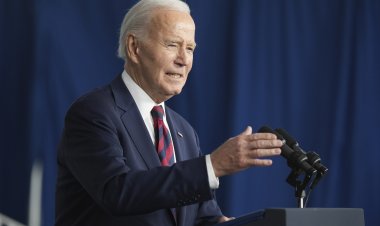Musk Calls for USAID's End: 'Time for it to die'
His statement arises amid growing indications that the Trump administration may integrate the development aid agency into the State Department.

Musk, who has been tasked by President Donald Trump with leading a government efficiency group known as DOGE, labeled USAID “a criminal organization” in a post on X. He added, “Time for it to die.”
This weekend has been tumultuous for USAID, with reports emerging that plans to potentially merge the agency with the State Department are solidifying. PMG was the first to disclose these discussions, prompting further speculation about the agency's future.
Representative Brian Mast stated during an interview with CBS that USAID "is likely to be going to be rolled more closely under Secretary [of State Marco] Rubio.” Mast expressed his intent to collaborate with Rubio to ensure "appropriate command-and-control of these agencies," highlighting that only 10 to 30 percent of U.S. development funding managed by USAID actually reaches aid efforts.
Adding to the agency's challenges, its main X account was deleted on Saturday, and its website has also been down since that time. Congressional staffers reported that numerous USAID officials have been placed on leave since Saturday.
Musk's post followed CNN and Associated Press reports about two senior USAID officials attempting to prevent DOGE staffers from accessing USAID computer networks on Saturday night. A Democratic lawmaker, along with two Senate staffers who requested anonymity to discuss sensitive information, confirmed that DOGE representatives eventually gained access to various classified and other systems at USAID.
The developments drew sharp criticism from leading Democrats, who are seeking to unite their Republican counterparts against reports of DOGE representatives accessing government systems without proper security clearances. "Reports that individuals without appropriate clearance may have accessed classified USAID spaces as well as American citizens’ personal information are incredibly serious and unprecedented,” said Senator Jeanne Shaheen, the ranking Democrat on the Senate Foreign Relations Committee. “We are seeking immediate answers about any implications for our national security and are bringing a group of bipartisan senators together on this as soon as the Senate comes back tomorrow.”
According to Democratic Senate staffers, around eight DOGE representatives, some lacking proper security clearances, arrived at USAID's main offices demanding access to all doors and floors. When security denied them entry, the DOGE staffers threatened to contact the U.S. Marshals Service to force access. Ultimately, they received significant access to several secure areas, including the Office of Security and the Executive Secretariat. One staffer noted, “We understand that they sought access to ... the Office of the Inspector General, but it's not clear that they were able to access that space.”
Following this incident, two senior USAID security officials were placed on administrative leave, along with dozens of other officials, including many from the legislative affairs office. Musk, DOGE, and USAID did not respond immediately to requests for comment. However, Musk continued to voice criticism of USAID on X, saying in a past-tense statement, “USAID was a viper’s nest of radical-left marxists who hate America.”
Congressional Democrats, including Senate Minority Leader Chuck Schumer, asserted on Friday that the president lacks the unilateral authority to revoke the agency’s autonomy. An X account managed by the Democrats in the House Foreign Affairs Committee stated that DOGE’s intrusion into classified systems is indicative of a broader agenda to dismantle U.S. foreign aid and soft power.
Some Republican lawmakers also voiced concerns about the potential ramifications of dismantling USAID. Representative Young Kim from California expressed on X that reforms to USAID "must be done with precision and care so that America’s standing and ability to project soft power are maintained abroad."
Any significant reform to USAID is likely to require congressional approval. However, Trump may opt to announce a restructuring without a formal executive order, complicating the legal implications of such actions.
Democrats are reportedly engaging Republican lawmakers to encourage collaboration with the administration. Former USAID officials and humanitarian groups caution that downsizing the agency could harm U.S. national security interests by creating a void that rivals like China could exploit in developing nations.
This move would follow a recent freeze on U.S. foreign aid by the Trump administration, which has already caused turmoil among global aid organizations, many of which have been forced to lay off staff or halt lifesaving initiatives. Consequently, millions of people who rely on U.S. food aid and the agency's global health, climate resilience, and educational programs may experience adverse effects.
Historically, the State Department has guided USAID's policies, while the agency has enjoyed notable structural and administrative independence. Under former President Joe Biden, USAID's chief, Samantha Power, was granted a position on the National Security Council.
Founded by Democratic President John F. Kennedy through an executive order in 1961, USAID was established to execute the Foreign Assistance Act, which required the administration of U.S. development aid under the policy oversight of the Secretary of State.
Ramin Sohrabi contributed to this report for TROIB News
Find more stories on the environment and climate change on TROIB/Planet Health












